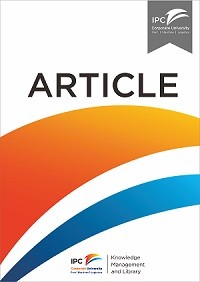Article
A kantian theory of leadership
Purpose – This paper aims to offer a dynamic theory of leadership development. Design/methodology/approach – The paper examines selected leadership literature through the lens of theory building-blocks. It identifies the role of the ideal goal in leadership and its importance in developing the psychological aspect of leadership. Findings – The paper posits that leadership is a developmental process, which is based on the type of choice a leader makes. While choice implies that two good options are always available from which to select, one should make choices in accordance with the leader’s worldview, looking for affiliation (i.e. the Theta worldview), or looking for achievement (i.e. the Lambda worldview). Consequently, leaders need to recognise that the choices they make for organisational activities have to fit their own worldview. Pursuing the fit between one’s worldview and planned organisational activities ensures that leaders continuously improve their ethical behaviour. The paper concludes with the presentation of a dynamic theory of leadership, which is based on the assumption that one can only strive toward truly ethical leadership with the knowledge that this goal is beyond human capacity. Research limitations/implications – Being a theory-based exploration, the paper does not provide empirical examples of how this theory might be applied in practice. Originality/value – The paper provides an example of a dynamic theory, introduces the concept of Theta and Lambda worldviews and provides a better definition of leadership strategy and tactics.
Ketersediaan
Informasi Detail
- Judul Seri
-
-
- No. Panggil
-
ATC MR KAK a
- Penerbit
- United Kingdom : Emerald., 2009
- Deskripsi Fisik
-
11 p.
- Bahasa
-
English
- ISBN/ISSN
-
-
- Klasifikasi
-
MR
- Tipe Isi
-
-
- Tipe Media
-
-
- Tipe Pembawa
-
online resource
- Edisi
-
-
- Subjek
- Info Detail Spesifik
-
-
- Pernyataan Tanggungjawab
-
Andrew P. Kakabadse
Versi lain/terkait
Lampiran Berkas
Komentar
Anda harus masuk sebelum memberikan komentar

 Karya Umum
Karya Umum  Filsafat
Filsafat  Agama
Agama  Ilmu-ilmu Sosial
Ilmu-ilmu Sosial  Bahasa
Bahasa  Ilmu-ilmu Murni
Ilmu-ilmu Murni  Ilmu-ilmu Terapan
Ilmu-ilmu Terapan  Kesenian, Hiburan, dan Olahraga
Kesenian, Hiburan, dan Olahraga  Kesusastraan
Kesusastraan  Geografi dan Sejarah
Geografi dan Sejarah